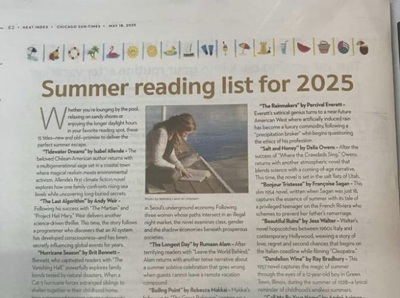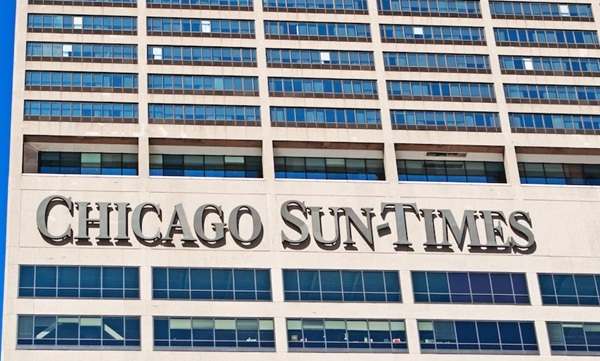Prominent Chicago Sun-Times newspaper has confirmed that a summer reading list, which included several recommendations for books that don’t exist, was created using artificial intelligence by a freelancer who worked with one of their content partners.
A statement by Victor Lim, marketing director for the Chicago Sun-Times’ parent company Chicago Public Media, the list was part of licensed content provided by King Features, a unit of the publisher Hearst Newspapers.

The list has no byline. However, Marco Buscaglia has claimed responsibility for it and says it was partly generated by Artificial Intelligence, as first reported by the website 404 Media. “Huge mistake on my part and has nothing to do with the Sun-Times. They trust that the content they purchase is accurate and I betrayed that trust. It’s on me 100 percent.”
Among the fake book titles are Hurricane Season by Brit Bennett, Nightshade Market by Min Jin Lee, The Longest Day by Rumaan Alam, Boiling Point by Rebecca Makkai, Migrations by Maggie O’Farrell and The Rainmakers by Percival Everett.
All the authors listed are real acclaimed novelists – but the books attached to them are not genuine titles that they published.
Additionally, the article includes descriptions for each of the phoney books as well as reasons why readers may enjoy them.
Others on social media have pointed out that the use of AI appears to be found throughout the pages of the Chicago Sun-Times summer 2025 section. Screenshots of an article called “Summer food trends” shows the piece quotes a purported Cornell University food anthropologist named Catherine Furst. But there appears to be no one by that name at Cornell.
The Chicago Sun-Times says it is “committed to making sure this never happens again”. The special section will be removed from the e-paper version of the Chicago Sun-Times as the publication vowed to update their policies pertaining to third-party licensed editorial content.
“We know that there is work to be done to provide more answers and transparency around the production and publication of this section, and will share additional updates in the coming days,” the publication said.
The Chicago Sun-Times, resulting from a 1948 merger, has long held the second largest circulation among newspapers in the Windy City. It trails only the Chicago Tribune.
The rise of AI content is an ongoing issue with which newsrooms have had to grapple. Certain papers have openly utilized the technology and even put out job postings for “AI-assisted” reporters.

